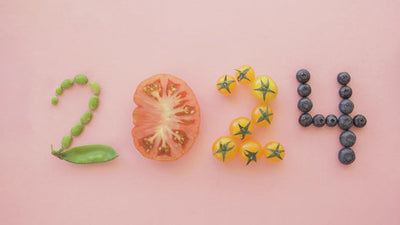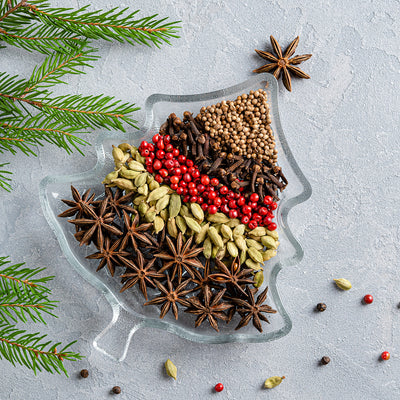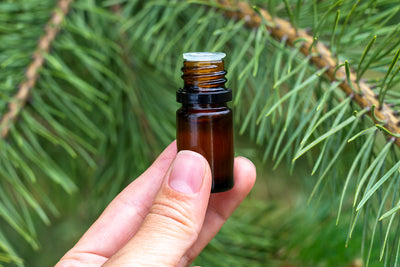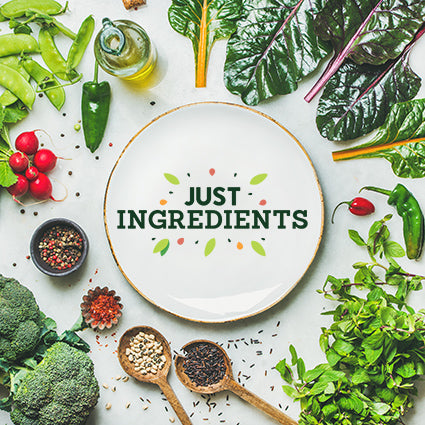The Mighty Mustard Seed: Small But Powerful 💛
When you think of mustard, what probably comes to mind is that tangy yellow condiment perfect for hot dogs and sandwiches... But mustard seeds, those tiny powerhouses, have a rich history and a surprising range of uses.
Let's dive into the fascinating world of mustard seeds, where ancient traditions meet modern culinary delights!
A Brief History of Mustard Seeds 📜 
Mustard seeds have been spicing up life for thousands of years. Originating from the Mediterranean region, these tiny seeds were used by ancient civilisations in Egypt, Greece, and Rome. They were not only valued for their flavour but also for their medicinal properties. In fact, mustard seeds were so highly regarded that they even found their way into religious texts, symbolising faith and growth...
Types of Mustard Seeds 🌱
Mustard seeds come in three main varieties, each with its unique flavour profile and culinary uses:
- Yellow Mustard Seeds: These are the mildest and are commonly used in American yellow mustard. They have a slightly sweet, tangy flavour.
- Brown Mustard Seeds: With a spicier kick, these seeds are popular in Indian cuisine and are often used in Dijon mustard.
- Black Mustard Seeds: The most pungent of the trio, black mustard seeds pack a punch and are widely used in South Asian cooking.
Culinary Magic: How to Use Mustard Seeds 👨🍳
Mustard seeds are incredibly versatile in the kitchen. Here are a few ways to incorporate them into your culinary repertoire:
- Tempering: In Indian cooking, mustard seeds are often tempered in hot oil until they pop, releasing a nutty aroma and adding depth to curries, dals, and vegetable dishes.
- Mustard Paste: Grind mustard seeds into a paste to create homemade mustard. Experiment with adding vinegar, honey, or spices to craft your signature mustard blend.
- Pickling: Add mustard seeds to your pickling spice mix for an extra layer of flavour in pickled vegetables.
- Seasoning: Sprinkle toasted mustard seeds on salads, roasted vegetables, or even popcorn for a delightful crunch and burst of flavour.

Beyond the Kitchen: Mustard Seeds in Traditional Medicine 💊
Mustard seeds aren't just for cooking. They have been used in traditional medicine for centuries due to their purported health benefits:
- Digestive Health: Mustard seeds are known to stimulate the digestive system, promoting healthy metabolism and aiding digestion.
- Anti-inflammatory: The seeds contain selenium and magnesium, which have anti-inflammatory properties that may help relieve arthritis and muscle pain.
- Skin and Hair Care: Mustard oil, extracted from the seeds, is used in various cultures for its moisturizing and antibacterial properties, benefiting both skin and hair.
Fun Mustard Seed Facts 🤯
- Tiny but Mighty: Despite their small size, mustard seeds can grow into large mustard plants, up to six feet tall!
- Biblical Significance: In Christianity, the mustard seed symbolizes faith. The Parable of the Mustard Seed in the Bible describes how a small seed grows into a large tree, signifying the growth of the Kingdom of Heaven.
- World Records: The largest mustard plant in the world was recorded in the UK, growing over 8 feet tall!
Growing Your Own Mustard Seeds 🌱
Feeling inspired? Growing mustard seeds is relatively easy and rewarding. Here’s how to get started:
- Planting: Sow the seeds directly in the garden in early spring or fall. They prefer cool weather and well-drained soil.
- Caring: Water regularly and watch out for pests. Mustard plants grow quickly and are usually ready to harvest in about 30-40 days.
- Harvesting: Once the plants bloom and form seed pods, allow them to dry on the plant. Harvest the seeds when the pods turn brown and brittle.
From their ancient roots to their modern culinary uses, mustard seeds prove that great things come in small packages. Whether you’re sprinkling them on your favourite dish, concocting a homemade mustard, or exploring their health benefits, mustard seeds are a small but mighty addition to your pantry.
So next time you reach for that bottle of mustard, take a moment to appreciate the tiny seeds that made it possible. Happy cooking!




